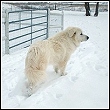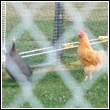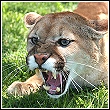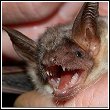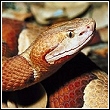Home
>
Our Services >
Wildlife Safety & Prevention
Florida gives wildlife everything they need to thrive - plenty of water, plenty of places to hide and plenty of
plants, fish and other animals to eat. Consequently, wildlife is abundant in the state and you can find everything
from harmless little geckos to massive panthers and bears.
In Florida, taking safety precautions and being smart when it comes
to wildlife is more than just something smart to do - it is a must.
When it comes to wildlife, safety and prevention go hand in hand. By employing methods that help
deter wildlife from unwanted areas you will be less likely to have encounters with dangerous animals such as
venomous snakes or mountain lions. And your property will be less likely to suffer damages from
destructive raccoons, squirrels, bats and other wildlife by following simple wildlife prevention tips.
On This Page
Call Us Today
239-900-6411
Serving Cape Coral,
Pine Island, Fort Myers
& Surrounding Areas
Pine Island, Fort Myers
& Surrounding Areas
The Wildlife Whisperer, Inc. Preventative Services
The Wildlife Whisperer, Inc. can help you with wildlife prevention and safety around your home or commercial property.
Lanai's are an important part of many Florida homes, and they can be particularly vulnerable to wildlife. Once an
animal makes it inside your lanai it will be much easier for them to get inside your home. We can
help you clean, screen, repair, proof and maintain your lanai to make it less susceptible to wildlife and the
damage they can do.
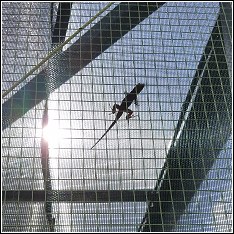
The Wildlife Whisperer, Inc. Offers
Lanai Repair & Installation Services
Lanai Repair & Installation Services
It is always a good idea to call in a knowledgeable professional to look for vulnerabilities around your
structures and identify ways to reduce your property's attraction to wildlife.
We can also inspect your property for any current issues that may not have been discovered yet.
This service can be particularly beneficial for potential home buyers as part of their pre-purchase property inspection.

Safety precautions can
help protect your family
There are basically five general steps that we follow when helping clients with pest and wildlife safety
and prevention around their property:
- Inspect the property for potential entry points, gaps and other susceptible areas that wildlife or pests might use, or be using, to get inside your home or building.
- Survey the landscaping around your property for potential problems, such as trees that could be utilized by wildlife to gain access to your roof.
- Look for signs of pests and wildlife around your home and property that would indicate current or potential problems.
- Identify potential attractants to wildlife around your home and make suggestions accordingly.
- Survey the environment surrounding your property and look for potential issues created by neighbors or nearby landscape.
- Inspect your fence line for gaps and loose boards. We can assist you with fence repair and making it so your dogs cannot dig out as well as keeping predators from digging under your fence.
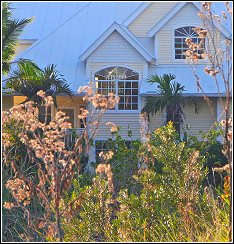
Some properties may present
more wildlife hazards than others
During inspections, we find that many homeowners are often unaware of the fact that things
they routinely enjoy around their home may actually be creating
wildlife problems and safety issues - situations such as
stone landscaping, trees touching roofs, neighbors feeding pets outside,
even bird feeders can all lead to wildlife issues.
It can also be difficult
for the average homeowner to inspect the vulnerable parts of their property themselves. Attics, chimneys, roof tops
and other areas can be very dangerous to navigate.
When it comes to safety and prevention
it often takes a professional to navigate these challenges and initially identify current or potential issues.
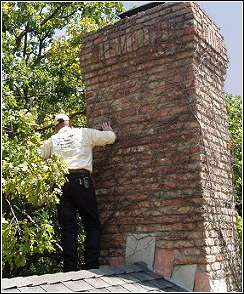
We can help identify vulnerable
areas in and around your home
Once potential vulnerabilities or issues have been identified, we can assist you with
any necessary modifications to your structure.
We can also provide you with landscaping and surrounding
property suggestions to discuss with your neighbor or outdoor maintenance team.
There is a lot you can do yourself to protect your home, however,
preventative measures are not as self evident as one might think, and
every building and property is totally different.
Rural properties provide wildlife with even more temptations. For instance, barns provide shelter for your
horses, cows, goats and other livestock, but wildlife will also be attracted to the shelter they provide.
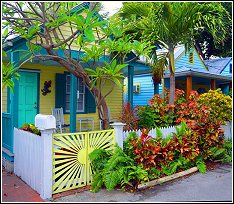
Rural properties can inadvertently
provide wildlife with food & shelter
We've put together some information for you on farm and pet safety including info on
making fences and coops more secure, utilizing livestock guardians and enlisting the help of working barn cats.
Wildlife Safety Measures
There are some very important things to remember when it comes to wildlife safety for you and your family.
Treat all wildlife as
Never touch or approach wildlife. Do not touch nests,
dens or feces. Keep your distance and call an area wildlife professional.

Treat all wildlife as
though it is infected.
Never touch or approach wildlife. Do not touch nests,
dens or feces. Keep your distance and call an area wildlife professional.

If you are bitten or scratched by wildlife,
keep the animal if you can. Do not injure the head
and contact your local health department immediately.
The animal in question must be checked for diseases.
Treat all snakes as if they are venomous.
Just because a snake is not venomous does not mean that the bite is not going to
physically hurt or cause salmonella. A non venomous snake bite will still hurt and bleed.
If you are bitten by a snake, take a photo of it or keep the animal if you can so the doctor
can administer the correct antivenom, if applicable.
More people are injured by snakes when they try to kill snakes than if they had just left it alone.
The Difference Between Venomous And Poisonous Snakes
Although research has recently deemed at least one snake's bite poisonous vs.
venomous, technically all venoms are a poison but not all poisons are venoms.
Any animal that injects a toxin into your body is called venomous. The proper
term is venomous snake, not poisonous snake.
Wildlife safety applies to pets too.
Keep your pet's vaccination up to date. If wildlife enters your home,
your pets will often approach it before you do and can be harmed.
Do not feed the birds, or wildlife in general.
You are inviting more wildlife than you think. Never feed hummingbirds;
the sweet smelling nectar attracts raccoons, skunks and opossum. Norway
rats cannot live in a residential area without an easy, free food source.
I repeat, feeding birds, and wildlife in general attracts much more wildlife
than you can possibly comprehend. If we had no scruples, we would mail a free
bird feeder to everybody in the U.S. with our logo and phone number printed on it.
If you or your neighbors feed wildlife, we guarantee that you will eventually
have wild animal problems and conflicts.
Install one or more bat houses.
Only 0.5% of bats carry rabies. Mosquitoes carry more diseases than bats.
Allow the bats to make your back yard more enjoyable - bats eat massive numbers of mosquitoes.
Do not keep wildlife as pets.
Exotic and native wildlife species do not make good pets.
Having a squirrel, raccoon or wild animal as a pet may seem fun at
first, but in the long run, it is a horrible idea that you will regret.
It is also against the law. A "human imprint" on any wild animal is very dangerous and very wrong
Additional Information:
The importance and recognition of wildlife as a reservoir of zoonoses are increasing.
The CDC has an article on zoonotic infections and prevention that you may find helpful to read.
We also have additional, more detailed information for you regarding particularly hazardous wildlife and ways you can help reduce or prevent
the risks associated with them.
Prevention Around Home And Property
The best way to prevent and manage nuisance wild animal problems is through preventative maintenance.
You can save thousands of dollars in wildlife control services later if you simply adjust a few things now.
When applicable, these are some helpful things you can do to reduce your chances of wildlife problems:
Tree Trimming
Asking people to trim their trees is the most difficult task we have - nobody wants to do it, but we know what works - there is no reason to have a highway allowing wildlife to travel onto your most important investment - your house.
Trim or remove trees so that they are 17-20' from your house and outbuildings; do so with a budget in mind.
Trees grow up to 3' a year. Trim vines, bushes and trees 17-20' from all fences.
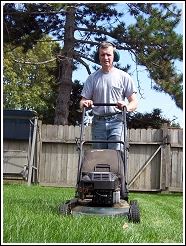
Home and Roofing Repairs
A majority of the calls we get are due to roofing construction gaps and rotten or damaged siding. Installing a cap on your chimney and covers on your vents will prevent unwanted wildlife entry. Block access to the underside of buildings, porches and decks. Our company makes a living off of roofers, handymen, do it yourselfers and builders who think they know how to keep animals out ... if they were doing it correctly, we would not be in business. If you want your building wildlife proofed or want your brand new or 100 year old home insect and wildlife proofed, please give us a call. The very worst buildings we work on to get wildlife out are brand new ones. Older buildings were built with what appears to be, in most cases, better materials and better work ethics... nobody cares like they used to. Hire us to micro-manage your building.General Wildlife Prevention Around The House
Tightly cover all garbage cans, do not feed your pets outdoors, do not feed any wildlife, including the birds. Cut and remove thick underbrush, eliminate brush and garbage piles. Mow your lawn frequently. Encourage neighbors to do the same, remind them it can be beneficial to them too.Cape Coral, Fort Myers & Pine Island
Sanibel Island, Captiva, Boca Grande and
surrounding areas in Southwest Florida
Mobile Response #: 239-900-6411
1242 SW Pine Island Rd., Suite 310
Cape Coral, Florida 33991-2126
help@totalwildlifecontrol.com
1242 SW Pine Island Rd., Suite 310
Cape Coral, Florida 33991-2126
help@totalwildlifecontrol.com



